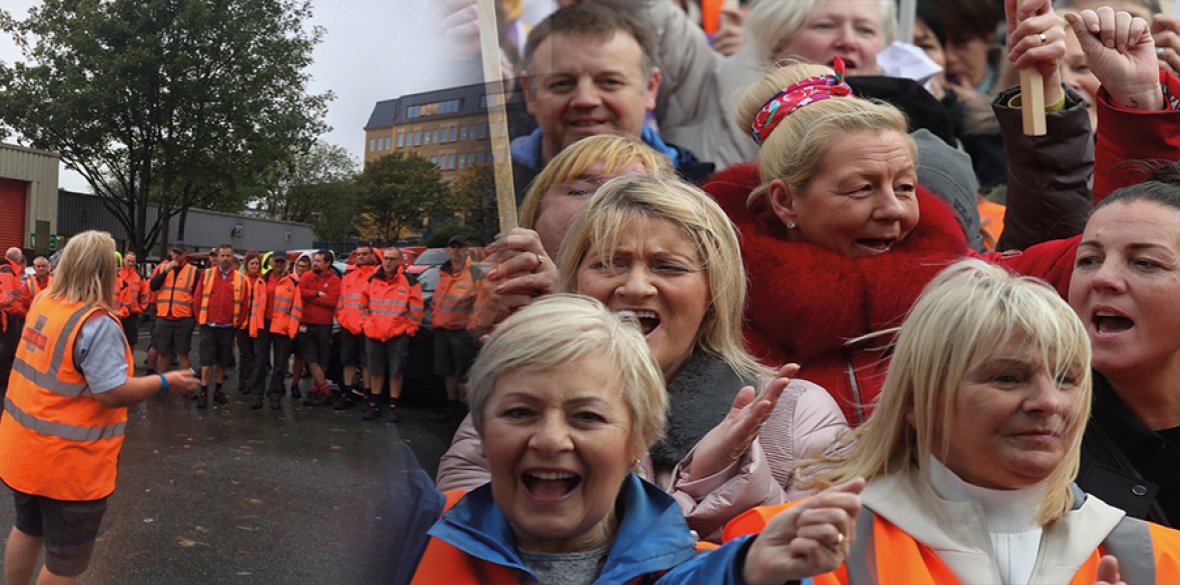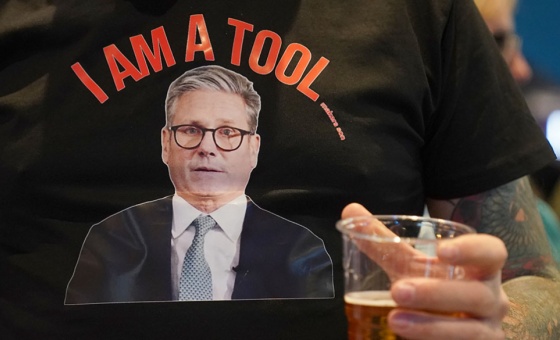This is the last article you can read this month
You can read more article this month
You can read more articles this month
Sorry your limit is up for this month
Reset on:
Please help support the Morning Star by subscribing here
IT’S crunch time for the government. The temporary nature of the measures taken in response to the coronavirus pandemic are now coming up against the reality – that this is a public health crisis that is going to be with us for a long time and is going to create long-running economic problems.
It feels like we’re on the brink of disaster. The short extension to the evictions ban will soon be up. The approaching end to the furlough scheme is one of the biggest concerns. So what’s the government going to do? Will we see a return to 1980s levels of unemployment – because the steps announced so far are just not going to save enough jobs to stave off catastrophe?
No sector of the workforce will be safe from the economic storm coming our way if that’s the case. But it doesn’t have to be.
We’re starting to see people turn away from the government – at first on issues of simple competence, but there are now bigger questions about the overall condition of the economy and its future, and these are the questions the left needs to be asking.
We shouldn’t simply be talking about returning to the way things were, building a broken economic model back up. We need to build an entirely new settlement, because one thing that has been made clear by coronavirus is that the existing economic model is fundamentally broken.
We’ve had government ministers admitting that they couldn’t survive on statutory sick pay. We’ve seen millions more people having to rely on universal credit, many of whom might have had no previous exposure to how cruel the benefits system is. We’ve even seen a recognition of how important trade unions are, from the way we addressed health and safety issues at the start of the crisis.
While the pandemic is a public health crisis, you cannot separate the results of this from longstanding problems in the world of work and with our economic model. It’s no coincidence we’ve seen outbreaks in factories in Leicester where terms and conditions are extremely poor. It’s no coincidence we’ve seen higher rates of exposure and deaths among BAME people who in many cases are the most economically disadvantaged, lowest paid people in the country.
So the left needs to be talking about the way the crisis has exposed these underlying economic problems. There is very little public support for just restoring the old economic model, so that opens up space to ask questions about what kind of economy and what kind of society we want to see.
Those are questions we at the CWU are asking in our two main industries, telecoms and the postal sector where we are facing huge issues.
In BT we’re seeing the first compulsory redundancies in grades we represent since privatisation in 1984. And we’re seeing a real shift in attitude from the company, which has decided to take on the union and is ploughing ahead with a huge restructuring and job reduction programme without engaging with the union.
BT has a unique status, having come out of the public sector and providing the bulk of our telecoms infrastructure. The government looks to BT to roll out next generation broadband. In companies like this, at a time of economic crisis, there’s surely a responsibility on its senior leaders to be doing all they can to protect jobs, rather than get rid of them.
But helping the industry isn’t just about job security for our members. A new democratic model of ownership for BT in the public sector would also deliver for the public. The UK lags way behind international competitors on fibre broadband which we urgently need to invest in – and we’ve seen in the pandemic just how important broadband access is.
Nine months ago when Labour was talking about providing free broadband I think a lot of people saw it as a luxury. What we’ve seen in recent months – particularly in education – is that it is absolutely essential and that millions of low income families are on the wrong side of a digital divide.
That’s why one of our amendments we’ve put forward at this year’s Congress is that all children should have access to broadband and computer equipment, and we’re calling specifically for a commitment to campaign for children living in poverty to have that.
As for Royal Mail, we still haven’t resolved our dispute with them – we’re in talks. But there’s been further talk about the possibility of cutting the universal service obligation.
Again during the pandemic we’ve seen just how important local postal workers and the service they provide are. And Royal Mail could be doing more – at the start of lockdown we made the offer, rather than going on strike when we got a Yes vote to do so, that Royal Mail could operate as a new emergency service – delivering prescriptions, linking up food banks, delivering testing. That’s an offer that still stands – particularly with the risk of a second wave.
Royal Mail is in a position to provide those things because it is unique in having a worker on every single street in the country, six days a week. But if it starts to roll back, if the government cuts that legal obligation, then the risk is we will see it go down the path of any low-cost parcel-delivery employer, like Yodel or DPD.
Our TUC motion on building a democratic new economy shows that we have an alternative vision. It means public ownership, and bringing Royal Mail back together with the Post Office, and setting up a Post Bank. But what we want to see is how it can grow and provide new services – rather than the leaders of the company saying we just need to reduce services and cut jobs until we’re just like any other parcel delivery firm.
Over the course of September there will be loads of debates that highlight issues like these. With online conferences and fringe meetings at the TUC, Labour, The World Transformed, hundreds of ideas will be put forward.
But we can’t just talk about what we want – our role, our responsibility as trade unionists, is to say what we are going to do in order to deliver it.
That’s the focus of our second TUC motion on developing the new deal for workers campaign, looking to mobilise trade unions around a shared set of demands on the world of work.
Alongside a political campaign, we need to co-ordinate our industrial work by sector. Take the postal and deliveries sector. There’s been a huge increase in the numbers working in the sector during the pandemic, with Amazon, Hermes and DPD recruiting thousands of new employees.
But the sector is riddled with bogus self-employment and most of the workforce aren’t unionised. So unions that represent workers in the sector need to work together on a serious plan to drive up recruitment and root out insecurity. We are looking to bring unions together to work on this as a key priority for the coming months.
If we do emerge from Congress and conference season with a clear plan, I think we do have reason to be optimistic. During the pandemic we’ve seen how powerful unions can be and we’ve seen some unions grow significantly in membership. We’ve seen people turning to unions to learn about and to defend their employment rights. In the CWU we’ve had sit-ins and workers refusing to work when they felt it was unsafe to do so.
And we’re seeing a shift in dynamic with people who have been able to work from home kicking back against the pressure from the government and the property owners that they need to get back to the office – just to prop up that broken economic model.
There’s a huge opportunity not just for unions to grow in this climate but to become more confident in putting forward what we think needs to change and mobilising to change it.











